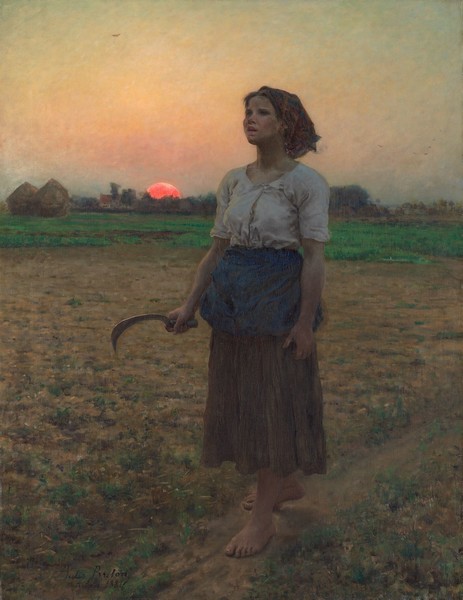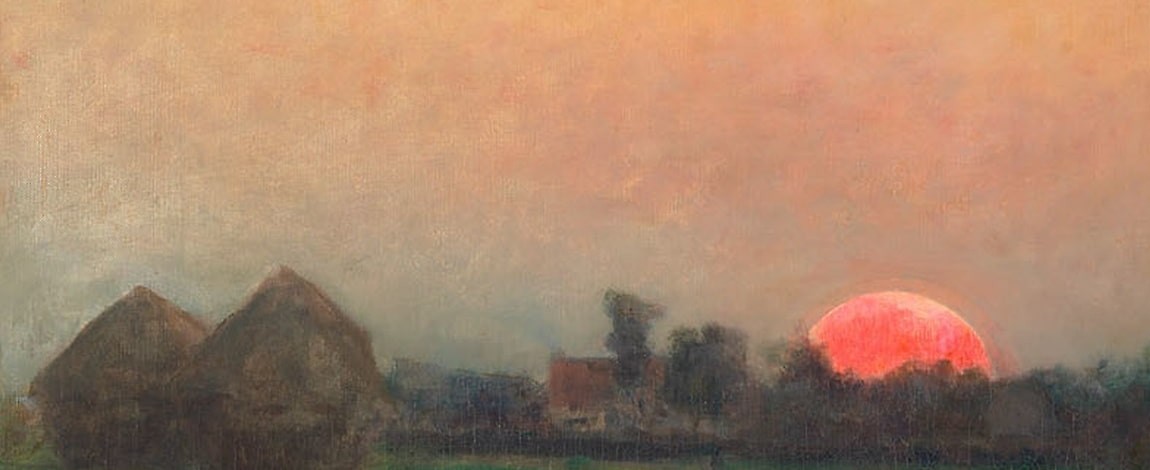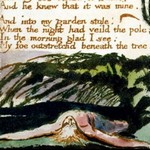
Second, last part of the talk with Simon Keenlyside. If you missed the first one, published last week, please click on this link.
As I told you previously, I particularly wanted to ask him about three songs closely linked to his career. The first one was Die Sterne (we read about it last week) and the second one, Im Walde, also by Schubert.
Die Sterne and Im Walde... They are so close to my life. There's something so fabulous about Schubert that people often get wrong: Schubert is never depressing. He is not. He is accepting. Look at the last songs he wrote, songs like Alinde, or songs like Abschied. He's galloping on a horse saying "goodbye to you beautiful women, goodbye to you stars, to you the lights in that house, I must keep galloping on. My time is finished." Goodbye to this beautiful, gorgeous world. He's so full of love, he's got tertiary syphilis, he knows he's going, and yet he's writing songs in such love and acceptance.
Im Walde... you have to be careful not to repeat these things too many times, so I haven't sung it for many years now; I want to, again. Yesterday, for example, I was in the middle of this fantastic natural park [Parc Natural del Garraf], and that's one of the songs I thought of. And also of Fußreise [by Wolf], you can suddenly be walking along and a song will flood your head with the volume full turn up, which is a lovely thing; I was in the middle of that, and so the song came flooding through my head because that's what it's about, that's what Im Walde says, I'm of nature in nature.
The third song is one that he sings in a singular, breathtaking way, Kaddish by Ravel.
I did it when my grandfather died and then when my father died. When I was a student, in the French song class, I was learning it and my French coach said, no, no, that's too extrovert. Well, I'm Jewish, and I went to a synagogue just to hear the music. And the Jewish cantors were very extrovert, extremely extrovert, they sang like a helden tenor, so that's the way it should be sung. And why? Because Kaddish it's about life and death, and if you sing about life, you sing with all your body. I don't like that precious singing, it's not for me. There's a distinction between delicacy, nuance, and tenderness and what sometimes, to my mind, is affected technicality. And I don't like it. If I hear a technicality in the song or I think it's affected and I don't believe it.
But I won't sing Kaddish now unless I need to, I think, because when I sang it, it changed it for me. I sang it wherever I was going, the time my father died because I loved my father. He was a nice man.
It's difficult to sing, too, but that's typical because the Jewish cantors, they're not tenors and they're not baritones. They just go all the way up, all the way down. I remember... I knew that I would not be able to sing it for my grandfather because I would be too upset, so I made a tape and at his funeral, I played the tape. One of my uncles that I've never seen came up to me after, he said, "So, was it you? Not bad, not bad", such a Jewish response [laugh]
In that first interview in 2013, Simon Keenlyside told us about he was thinking of recording Winterreise and publish it along with his own illustrations; that project, at least for the moment, was not forthcoming.
It was a good idea. I wanted to record it with Manny [Emmanuel Ax] because we had done 15, 20 recitals of Winterreise all around the world. And that was the time when I wanted to record it, but it didn't happen for whatever reason. I don't really like recording... but I might do. I might just illustrate anyway. Who knows?
I don't know. I could stop and just do songs... but I would miss opera. I'm always flirting with the idea of going. Why don't you just sing songs, record some nice albums? Do that. And I'll go home more...
At this point, it was inevitable to talk about recordings. Or rather, about the few recordings he made. What about leaving, so to speak, a legacy?
No, no, there's no such thing. I don't care about. The new generations must make their own way. Legaciy is for idiots. Anyone who chases a legacy is chasing their own shadow. There are enough things out there.
I like recordings, I've thousands of them myself and I listen to them all the time. I'm almost obsessive about old singers and listen to them forensically, I love it, and I remember saying to a famous young singer [Simon O'Neill] ten years ago, why don't you listen to Leonard Warren? I was talking about a live recording when Warren was on tour in Russia. He said, Who's Leonard Warren? I said, well, he's one of the most important operatic baritones of the 20th century. I mean, this was a professional singer, and he didn't know Warren.
When I listen to a recording of Pavel Lisitsian for example It's fantastic, and I've got a little snapshot of that man's life... or Yuri Mazurok, there's a recording of Onegin... wonderful singing. Why do we need more recordings?
I'm fighting all the time to see my children. Malcolm is always saying, come on, let's record some Ravel, let's record some Poulenc, let's record Duparc with Sarah Connolly. In theory, I want to, but if in practise it's another week away and I don't want to do it. And everything is recorded now anyway. Why didn't I record Pelléas? It's a shame. I'd like to have done it; Jose van Dam told me, shall your record it? I said, I'd love to. But we didn't.
When my grandfather died, I had boxs of recordings. When my singing teacher died, I had another trunk of reel to reel recordings. My father died, and the same, and two years ago I took them all to the rubbish dump. And I said, I love you, but bye bye. And my own programmes, I took all my programmes. What's the point? You should live in the now. That's it. There isn't anything else.
I like the Schumann's Kerner recording with Graham, I'm proud of that. I did a Strauss recording that doesn't exist anymore, but I'm proud of that. I did Brahms, it's okay. The Dichterliebe, I don't like it. I did the musicals and opera arias, which I'm proud of. But most of my recordings are rubbish.
What should we listen when we listen to a song recital? What does he listen?
I think you should listen to what you want to. Some people go just for voices, they are voice queens only.
But that's another thing. I'm a great fan of Christoph Prégardien. You would not say that Christoph has the greatest vocal technique, and he's a fine, fine singer, don't get me wrong. But I find his Lieder singing absolutely ravishing. I had to stop the car once in Austria because he was on the radio and it was so gorgeous. What I want is somebody who can touch me. But that's the point. Why is he touching me? Well, that's his secret. Something in the production of the sound, the way he's turning the words. Really it doesn't matter. When you watch a gymnast doing their things, what you want to do is to marvel at their ability. You don't really want to know what their training regime is.
Or, for example, I think one of the best Liederabend I ever went to was a very unusual programme from Florian Boesch. Florian is such an artist! And you would not say that he is a great technical singer. I went to the Konzerthaus, it was a strange cycle by Krenek [Reisebuch aus den Oesterreichischen Alpen], I was stunned. I want dimension, clarity, no affectation. I want to see somebody who's prepared to get naked, so to speak. And the three people, Christian, Christoph, and Florian do that.
Of course, we talked about a usual topic in talks about Art Song: are song recitals dying because of a lack of audiences?
When I was a boy, I would look up into Wigmore Hall and see a sea of grey hair. And everybody would say, well, what happens when these old refugees die? Well, here we are 35 years later, you look up, and it's a sea of grey haired again. People grow into it, I don't think Lied is necessarily for young people. We don't need everyone to like it. We just need enough of an audience, that's the important thing. As long as we have that... We don't need everybody to love opera, just enough people. When I hear in the country I'm living this sort of negativity about classical music and opera, I just think it's just not true. I was in New York for two weeks and people in the Upper West Side were saying hello to me on the street. I thought, this is strange, I'm just a singer, I'm nobody. But I realized that in two weeks we had sung that opera to 40,000 people in two weeks. That is not an art form that is not loved. I think of Germany, its 84 opera houses, of France, there are new opera houses opening in the East, in China, in Korea, there are new singers coming in. Opera is an art form that is deeply loved, and song is too. Not by everybody, but that's fine. We're not trying to compare it with pop music or with musicals. It's not the modern currency.
We started the conversation talking about his debut at Wigmore Hall. Thirty-five years later, what has changed?
I think when I was young, I was struggling so much with language and the technical issues that I was more outside of song trying to present a song, this beautiful jewel, the best as I could. When I listen to my early recordings, I think I remember thinking of how difficult this was, to present this difficult technical thing as beautifully as I could. I think age gives you more possibilities, more colour. You are freer. You feel freer to use different colours, to find a colour that might affect people. They don't really know why they're being affected, but they are being affected; sometimes it's the attack on a word which could be aggressive and make people oh! In archery, you have the quiver with the arrows, all those arrows are inflexions in music, aren't they? So the way you hold your body, or the way you do the gesture, the way you move your face, the way you start a note or you finish a note, the volume of the note and the text, those are all arrows, and you've got so many to affect people's. But I do love the colour one.
And when it's a song you know, really, really well, like an old shoe, you just speak it. It's not any more a question of thinking to open my throat, lift my soft palate. It's not like that, it's just talk. So, I think it gets much easier, you get more colours. I like singing much more now than I did when I was younger.
Finally, I asked Simon Keenlyside to choose a song to illustrate the conversation. And he thought for a while...
It's funny, is like when you go to a pond, let's say that pond is your memory full of your whole work, and you put your hand and pick... I think right now a song about life is the thing, not a song about introspection, given the climate in the world right now.
Lerchengesang, by Brahms. Beautiful song. And it's got some optimism about it. I know birds, most bird songs, so a lark is something really, really special to me. Not just because it lives up there in the sky and fills the air with sound, but also because a lark also is an incredible mimic. If you're able to sit underneath one lark, you would hear a sparrow or swallow a curlew or a red shank, all the birds that would live in that area. And again, me too, I'm a little bit of a mimic.
And here we have the song, Lerchengesang, performed by Simon Keenlyside and Malcolm Martineau.
Ätherische ferne Stimmen,
Der Lerchen himmlische Grüße,
Wie regt ihr mir so süße
Die Brust, ihr lieblichen Stimmen!
Ich schließe leis mein Auge,
Da ziehn Erinnerungen
In sanften Dämmerungen,
Durchweht vom Frühlingshauche.
Ethereal, distant voices,
The heavenly greetings of the larks:
How sweetly you move
My heart, you lovely voices!
I close my eyes gently;
There pass memories
Of soft twilights,
Pervaded with the breath of Spring.
(translated by Emily Ezust)





 A man is...
A man is...











Comments powered by CComment